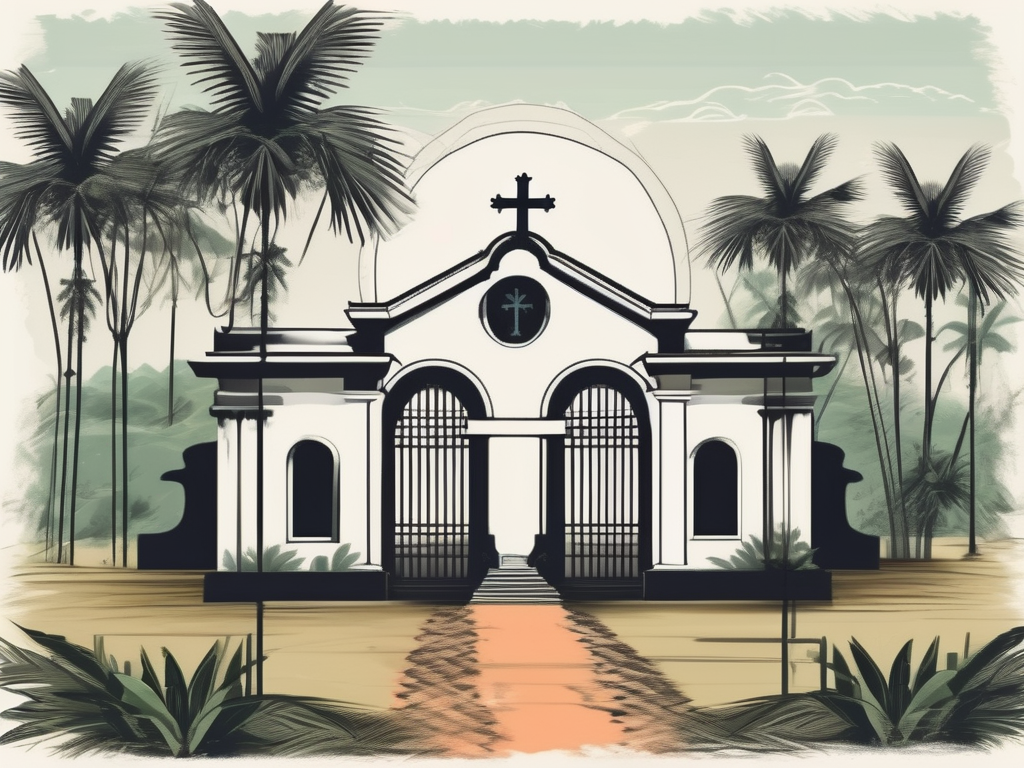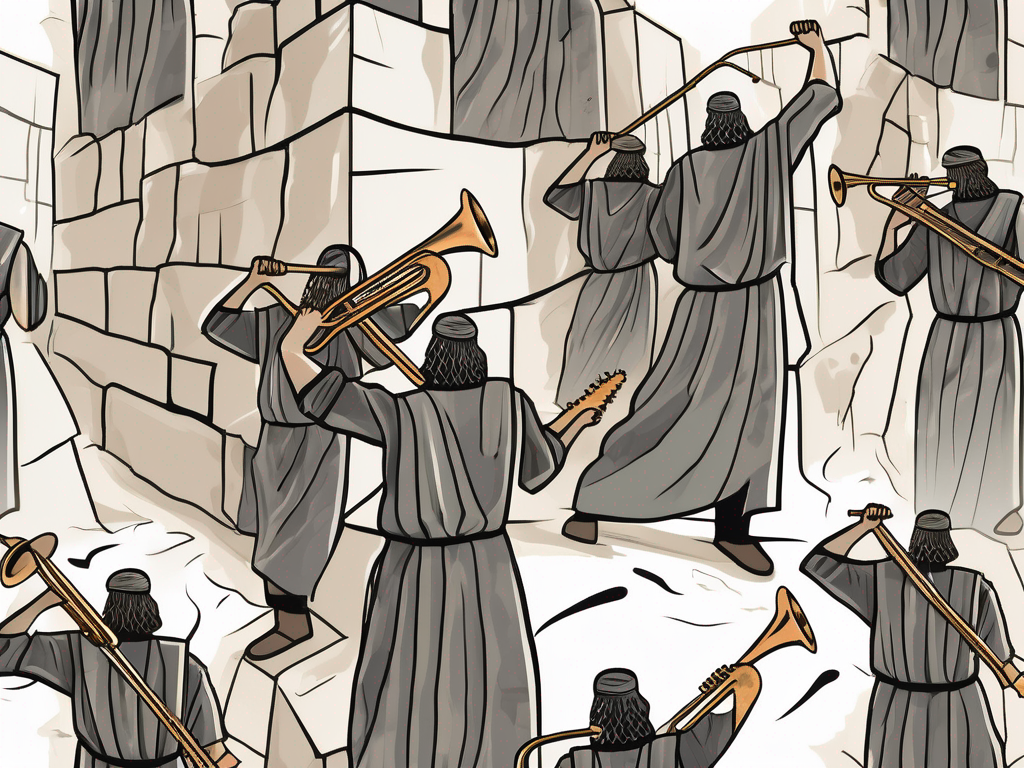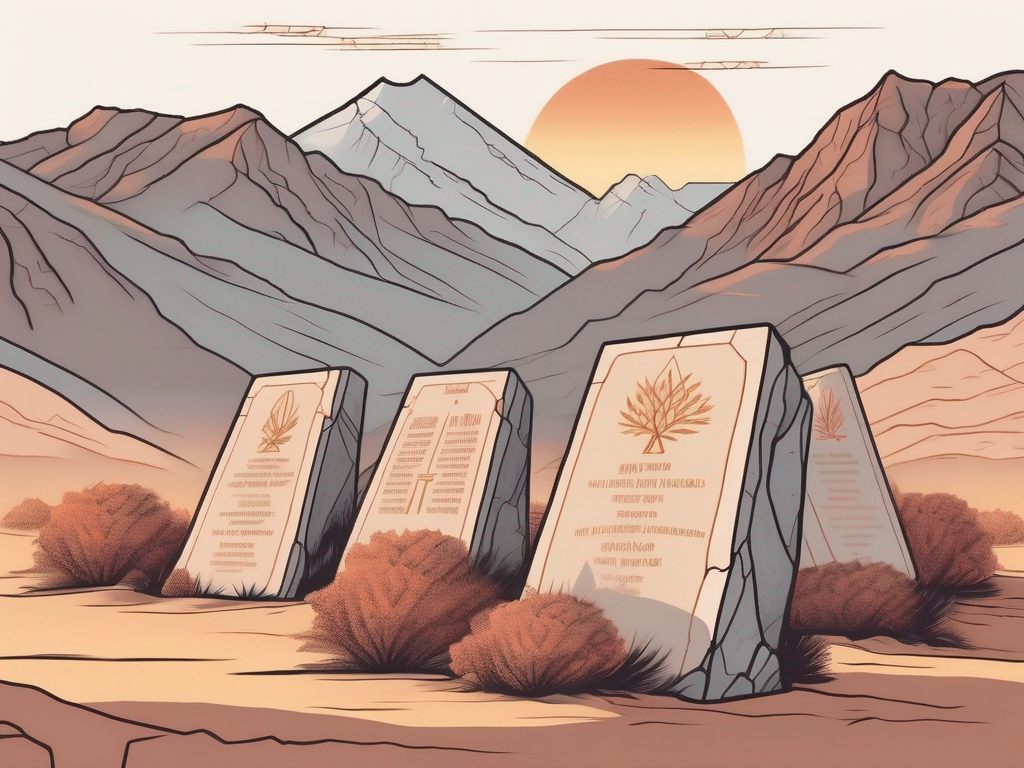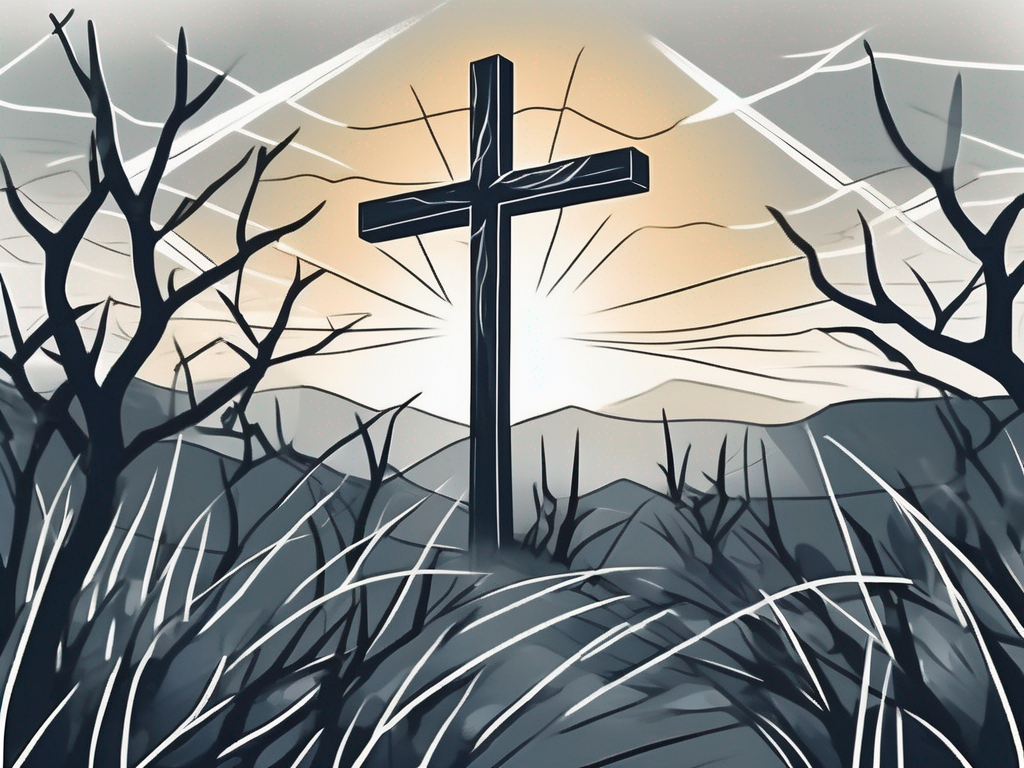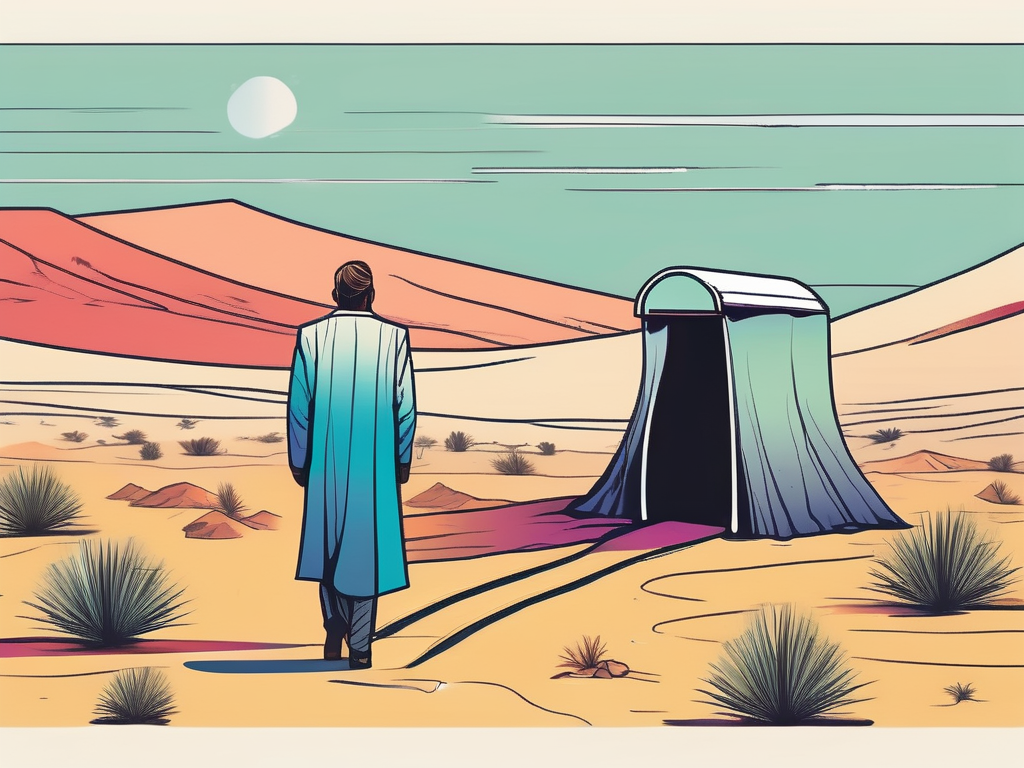Moses is one of the most prominent figures in the Bible, known for his extraordinary life and the profound impact he had on the history of Israel. From his early years to his role as a leader and the legacy he left behind, Moses’ story continues to inspire and captivate people of all generations.
Understanding Moses: An Introduction
Before delving into Moses’ life, it is important to gain a basic understanding of who he was and the context in which he lived. Moses was born during a time when the Israelites were enslaved in Egypt, suffering under the harsh rule of Pharaoh. His birth, however, was no ordinary occurrence.
Moses’ Early Life
Moses’ journey begins with his birth to Hebrew parents, who, in a desperate attempt to save him from Pharaoh’s decree to kill all Hebrew male infants, placed him in a basket and floated him down the Nile River. Miraculously, the basket was discovered by Pharaoh’s daughter, who adopted Moses as her own, thus ensuring his safety and providing him with a privileged upbringing in the Egyptian palace.
Growing up in the palace, Moses was exposed to the opulence and power of Egyptian society. He received the best education, learning the language, customs, and traditions of the Egyptians. However, despite his privileged position, Moses never forgot his Hebrew roots. He felt a deep connection to his people, even though he was raised as an Egyptian.
Moses in Egyptian Society
As Moses grew older, he became aware of his Hebrew heritage and felt a deep connection to his people. One day, while witnessing the harsh treatment of the Hebrew slaves, Moses took matters into his own hands and killed an Egyptian taskmaster who was mistreating a Hebrew slave. Realizing the seriousness of his actions, Moses fled Egypt and found refuge in the land of Midian.
In Midian, Moses started a new life, far away from the luxuries of the Egyptian palace. He became a shepherd, tending to his father-in-law’s flock. It was during this time of solitude and reflection that Moses began to question his purpose and place in the world. He wondered if there was more to his life than just being a shepherd.
The Call of Moses
Years later, Moses had a life-altering encounter with God. While tending his father-in-law’s flock on Mount Horeb, he witnessed a burning bush that was not consumed by the fire. Curiosity piqued, Moses approached the bush, only to hear the voice of God calling him by name. This encounter marked the beginning of Moses’ journey as the chosen leader and deliverer of the Israelites.
Overwhelmed by the significance of God’s call, Moses initially hesitated and doubted his own abilities. He questioned why he, a mere shepherd, was chosen to lead the Israelites out of slavery. However, God reassured him, promising to be with him every step of the way and providing him with the necessary signs and miracles to convince the Israelites of his divine calling.
The Burning Bush Encounter
As Moses stood before the burning bush, he realized that he was in the presence of something greater than himself. The voice of God spoke to him, revealing His plan to deliver the Israelites from bondage and lead them to the Promised Land. Moses was filled with awe and trepidation, knowing that he had been chosen for a monumental task.
God revealed His name to Moses, proclaiming, “I AM WHO I AM.” This divine name symbolized God’s eternal and unchanging nature, emphasizing His authority and power. Moses was instructed to go to Pharaoh and demand the release of the Israelites, using the signs and wonders that God would perform through him as proof of his divine mission.
With a mixture of fear and determination, Moses accepted the call and embarked on a journey that would test his faith, courage, and leadership. He would confront Pharaoh, witness the ten plagues, part the Red Sea, and lead the Israelites through the wilderness for forty years.
As we explore Moses’ life in more detail, we will uncover the challenges he faced, the lessons he learned, and the legacy he left behind. Moses’ story is not just a historical account but a testament to the power of faith, resilience, and obedience to God’s calling.
Moses as a Leader
Moses’ role as a leader would come to the forefront during the Exodus, the pivotal event in Israelite history that marked their liberation from slavery in Egypt.
The Exodus from Egypt
With God’s guidance and a series of miraculous plagues, Moses confronted Pharaoh, demanding the release of the Israelites. Despite Pharaoh’s initial refusal, the plagues finally convinced him to let the Israelites go. The dramatic escape of the Israelites from Egypt, led by Moses, is a central event that showcases God’s power and protection.
As the Israelites made their way through the wilderness, Moses faced numerous challenges in leading the newly liberated nation. He had to navigate the treacherous terrain, ensuring the safety and well-being of the people. Moses’ leadership skills were put to the test as he organized the Israelites into a cohesive community, establishing order and structure amidst the chaos of their newfound freedom.
During their journey, Moses faced not only physical challenges but also the daunting task of maintaining the faith and trust of the Israelites. He had to constantly remind them of God’s promises and reassure them that their liberation was part of a divine plan. Moses’ unwavering faith and ability to inspire others played a crucial role in keeping the Israelites united and focused on their ultimate destination.
The Ten Commandments
As the Israelites continued their journey through the wilderness, Moses ascended Mount Sinai, a sacred mountain, and received the Ten Commandments directly from God. These commandments served as the foundation of the Israelite moral and legal system, providing guidance on how to live a righteous and just life.
Moses’ role as the intermediary between God and the people was further solidified through the reception of the Ten Commandments. He became not only a political leader but also a spiritual guide, responsible for imparting God’s laws and teachings to the Israelites. Moses’ deep understanding of the commandments and his ability to interpret them ensured that the Israelites had a clear moral compass to follow as they continued their journey towards the promised land.
Furthermore, the Ten Commandments served as a unifying force for the Israelites, binding them together through a shared set of values and principles. Moses’ role in delivering these commandments played a crucial part in shaping the Israelite identity and establishing a sense of collective responsibility among the people.
The Wilderness Journey
As the Israelites wandered through the wilderness for forty years, Moses faced numerous challenges and navigated the complexities of leading a large and diverse group of people.
The wilderness journey was not an easy one for Moses and the Israelites. They faced harsh conditions, scorching heat during the day and freezing temperatures at night. The lack of food and water added to their struggles, causing many to doubt their decision to leave Egypt. However, Moses remained resolute in his faith and determination to lead the people to the Promised Land.
The Challenges Faced by Moses
One of the biggest challenges Moses faced was the constant grumbling and discontentment of the Israelites. They doubted his leadership and longed for the comforts they had left behind in Egypt. Despite these challenges, Moses remained steadfast and sought guidance from God in every decision he made.
Another challenge that Moses encountered was the task of maintaining order and discipline among such a large and diverse group of people. With different tribes and clans, each with their own customs and traditions, it was not always easy to keep everyone united. Moses had to mediate disputes, enforce laws, and ensure that everyone had a voice in the decision-making process.
Miracles and Teachings in the Desert
During their time in the wilderness, Moses performed numerous miracles and provided teachings to the Israelites, ensuring they remained faithful to God’s covenant. He partook in the miraculous provision of manna, water from a rock, and the construction of the Tabernacle, a portable sanctuary for worship.
One of the most significant miracles was the parting of the Red Sea. As the Israelites were pursued by the Egyptian army, Moses raised his staff, and the waters of the sea miraculously parted, allowing the Israelites to cross safely. This event not only demonstrated God’s power but also solidified Moses’ role as a leader chosen by God.
In addition to miracles, Moses also provided teachings to guide the Israelites in their faith and daily lives. He delivered the Ten Commandments, which served as a moral compass for the people. Moses also taught them about the importance of obedience, faith, and trust in God’s plan.
Throughout the wilderness journey, Moses faced numerous trials and tribulations. Yet, he remained steadfast in his commitment to lead the Israelites to the Promised Land. His unwavering faith, resilience, and dedication continue to inspire people to this day.
The Final Days of Moses
As the Israelites reached the borders of the Promised Land, Moses knew he would not be able to enter it himself. His final days were marked by a heartfelt farewell speech, where he reminded the Israelites of their covenant with God and the importance of obeying His commandments.
Moses’ Farewell Speech
Moses encouraged the Israelites to remain faithful, forewarning them of the consequences they would face if they strayed from their covenant with God. He reminded them of the miracles God had performed on their behalf, from the parting of the Red Sea to the provision of manna in the wilderness. With passion and conviction, Moses urged the Israelites to hold fast to their faith and to pass it down to future generations.
With tears in his eyes, Moses spoke of the countless challenges they had faced together as a nation. He recounted the years of wandering in the desert, the battles fought, and the victories won. Moses emphasized the importance of unity and obedience, reminding the Israelites that their strength lay in their commitment to God and each other.
As he neared the end of his speech, Moses appointed Joshua as his successor, affirming that the journey he started would continue under capable leadership. He assured the Israelites that Joshua had been chosen by God and possessed the wisdom and strength to lead them into the Promised Land.
The Death of Moses
As Moses’ time on earth came to an end, he climbed Mount Nebo, overlooking the Promised Land. It was there that God allowed Moses to glimpse the land he longed to enter, but he was not destined to set foot in it. With a heavy heart, Moses accepted God’s decree and turned his gaze towards the future of the Israelites.
Surrounded by the beauty of the land he would never step foot on, Moses reflected on his journey. He thought of the burning bush, the plagues of Egypt, and the miraculous parting of the Red Sea. He remembered the times he had interceded on behalf of the Israelites, pleading with God to show them mercy and forgiveness. Moses felt a deep sense of gratitude for the privilege of being chosen as God’s instrument.
After bestowing a final blessing upon the Israelites, Moses peacefully passed away, leaving behind a nation mourning the loss of their beloved leader. His death marked the end of an era, but his legacy would live on in the hearts and minds of the Israelites for generations to come.
In conclusion, Moses played a pivotal role in the biblical narrative. His journey from the palace of Egypt to the wilderness of the Promised Land is filled with extraordinary events and displays of God’s power. Moses’ leadership, faith, and unwavering dedication to God continue to inspire people today, reminding us of the remarkable impact one individual can have on the world.
But the story of Moses does not end here. The Israelites, under Joshua’s leadership, would go on to conquer the Promised Land and establish themselves as a nation. The legacy of Moses would shape their identity and guide their actions for centuries to come. His life serves as a testament to the power of faith, perseverance, and obedience to God’s will.
As we reflect on the final days of Moses, let us remember the lessons he imparted to the Israelites. Let us strive to remain faithful to our own covenants with God, knowing that obedience brings blessings and straying from His path leads to consequences. May we also find inspiration in Moses’ unwavering commitment to God and his people, and may his story continue to ignite our own faith journeys.

